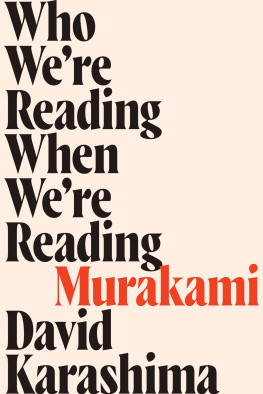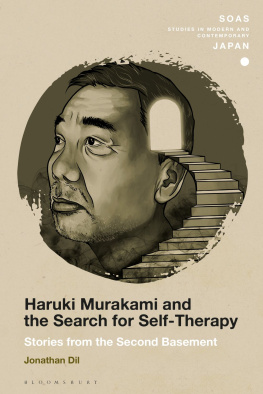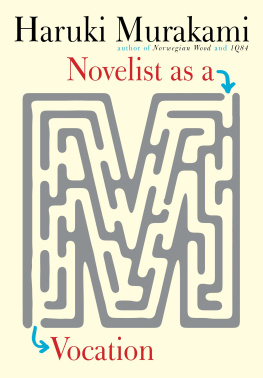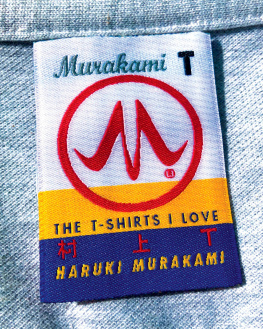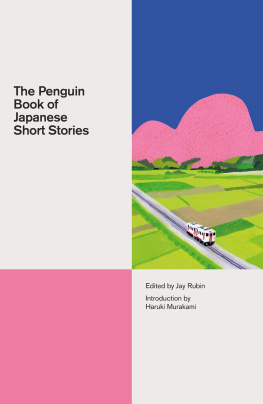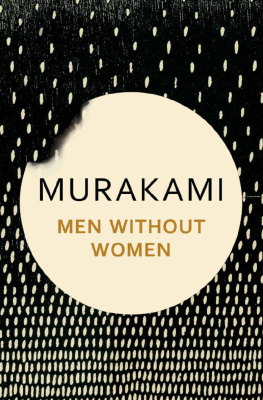Contents
Guide
Page List
Praise for Who Were Reading When Were Reading Murakami
When a work of fiction touches someone, it becomes contagious, swimming into new worlds through the lives and spirits of its readers; when a work of fiction is translated, it is reborn. There is something intensely human in this miraculous process, though that something is often lost in the larger currents that surround it. This book shows us, in all their warmth and sincerity, and through their own earnest words, the people who make translations possible.
SAYAKA MURATA,
author of Convenience Store Woman
An astonishingly thorough and illuminating look at the way that Murakami became recognized, and at all the peopletranslators in particularwho made it possible by the decisions they made. Karashimas book is a hands-on and very frank look at the social construction of a literary reputation.
BRIAN EVENSON,
author of Song for the Unraveling of the World and Raymond Carvers What We Talk About When We Talk About Love
The result of years of research and countless interviews, Who Were Reading When Were Reading Murakami offers an engaging, thought-provoking behind-the-scenes look at the people whose enthusiasm, dedication, and vision paved the way for Haruki Murakamis emergence as one of the worlds great contemporary writers. This book will make you see literature, and translation, in a whole new light.
MICHAEL EMMERICH,
translator and author of The Tale of Genji: Translation, Canonization, and World Literature
Karashima, a Japanese novelist and translator, has conducted a profound riff on the art of translation in considering the work of Haruki Murakami, and how it differs in English from its original publications in Japanese. Like William H. Gasss book, Reading Rilke, this will probably become a must read for translators and fans of Murakami alike.
JOHN FREEMAN,
author of Dictionary of the Undoing
Murakami fans will particularly revel in Karashimas comprehensive coverage, but anyone curious about the alchemy and sheer amount of work that goes into making a single authors success will be entranced by this fascinating work.
Publishers Weekly (starred review)
A lively account of the many people involved in bringing Haruki Murakamis writings to English-speaking readers... A fascinating glimpse into the inner workings of publishing.
Kirkus Reviews
A fascinatingly detailed account that enables the reader to gradually grasp how winding and tricky the trail bends from one culture to another, and how dependent individual literary success is on the creative and logistical whims of a selected team of enablers... A book not so much about , the Japanese writer, but rather about Haruki Murakami, the English variant of his moniker, and also not-so-coincidentally the brand name that has spread throughout the whole globe... About how international bridges are built, one sympathetic brick at a time.
nihongobookreview
Who Were Reading When Were Reading Murakami

Copyright 2020 by David Karashima
All rights reserved
First Soft Skull edition: 2020
Library of Congress Cataloging-in-Publication Data
Names: Karashima, David James, author.
Title: Who were reading when were reading Murakami / David Karashima.
Description: First Soft Skull edition. | New York : Soft Skull, 2020. | Includes bibliographical references.
Identifiers: LCCN 2020010744 | ISBN 9781593765897 (paperback) | ISBN 9781593765903 (ebook)
Subjects: LCSH: Murakami, Haruki, 1949 Criticism and interpretation. | Murakami, Haruki, 1949 Relations with editors. | Murakami, Haruki, 1949 TranslationsHistory and criticism. | Literature publishingJapanHistory20th century.
Classification: LCC PL856.U673 Z7555 2020 | DDC 895.63/5dc23
LC record available at https://lccn.loc.gov/2020010744
Cover design & Soft Skull art direction by salu.io
Book design by Jordan Koluch
Published by Soft Skull Press
1140 Broadway, Suite 704
New York, NY 10001
www.softskull.com
Printed in the United States of America
13579108642
For M, H, and T
Contents
Who Were Reading When Were Reading Murakami
A writer friend once said to me that if non-Japanese readers know anything about Japan, they usually know just two things: manga and Murakami. But whator whois it that these non-Japanese readers of Murakami know? While Murakamis books have now been published in more than fifty languages and have sold millions of copies globally, it is easy to forget that the works that a great many of his readersdevotees, fans, critics, and detractors alikehave come to know are also creations of his translators, editors, and publishers around the world. This book explores the Murakami phenomenon from a very particular angle, traveling back in time to tell the stories of the colorful cast of characters who first contributed to publishing Murakamis work in English, which in turn laid the foundation for the authors subsequent global reach.
In the early stages of my research I had a pretty good sense of what I wanted to say. The more people I got to talk to and the more documents I managed to excavate, however, the more convinced I became that any point I was hoping to make might be best communicated through the voices of the many people who played key roles in the making of the author we know as Haruki Murakami. So this bookwhich is an adaptation of a book first published in Japanese in 2018has come to be largely about their efforts and recollections. It seems somehow fitting that I am able to share this tale about translation with readers of English through a process of translation and adaptation.
DAVID KARASHIMA
March 24, 2020
The first three novels I read by Murakami... were all translated by Alfred Birnbaum. When I finished the books, I was mildly curious to know more about Murakami; I was desperate to know more about Birnbaum.
WENDY LESSER, Why I Read
Alfred Birnbaum lives in a narrow two-story house near Inokashira Park in west Tokyo with his wife, Thi, and their two cats, Koko and Chacha. The structure had been an abandoned boardinghouse when he purchased it around ten years ago; he has since transformed it into a unique, charming, self-designed home. The living room, which is on the second floor, rises to an open-beam ceiling. A wood-burning fireplace has been situated in a corner overlooking train tracks that connect two popular hubs of the city, Kichijji and Shibuya. When a train stops at the crossing, Birnbaum walks over to the window and waves at the people in the train. Nobody glances in his direction.
There are fewer books lining the bookshelf than you might expect in the house of a literary translator. Birnbaum explains that while he is almost never away from an open book, he has been on the move for most of his life, so once hes done with a book he leaves it behind or gives it away. Anyway, this house does not have the kind of space that can afford walls of books. This is Tokyo, after all. The ones that have managed to stay on his shelf include The Book of Dave and Dr. Mukti and Other Tales of Woe, by Will Self (An excellent writer, great sense of humor); Zadie Smiths NW (Cant remember if I read that); Thomas Pynchons Bleeding Edge (A gift); and a range of novels in Spanish, including those by Julio Cortzar and Jorge Luis Borges (Those I read many times).
He seems to have no books by Haruki Murakami. When I point this out, Birnbaum shrugs. They still send them to me... dont think they sent me the latest yet... but the others should be somewhere.

